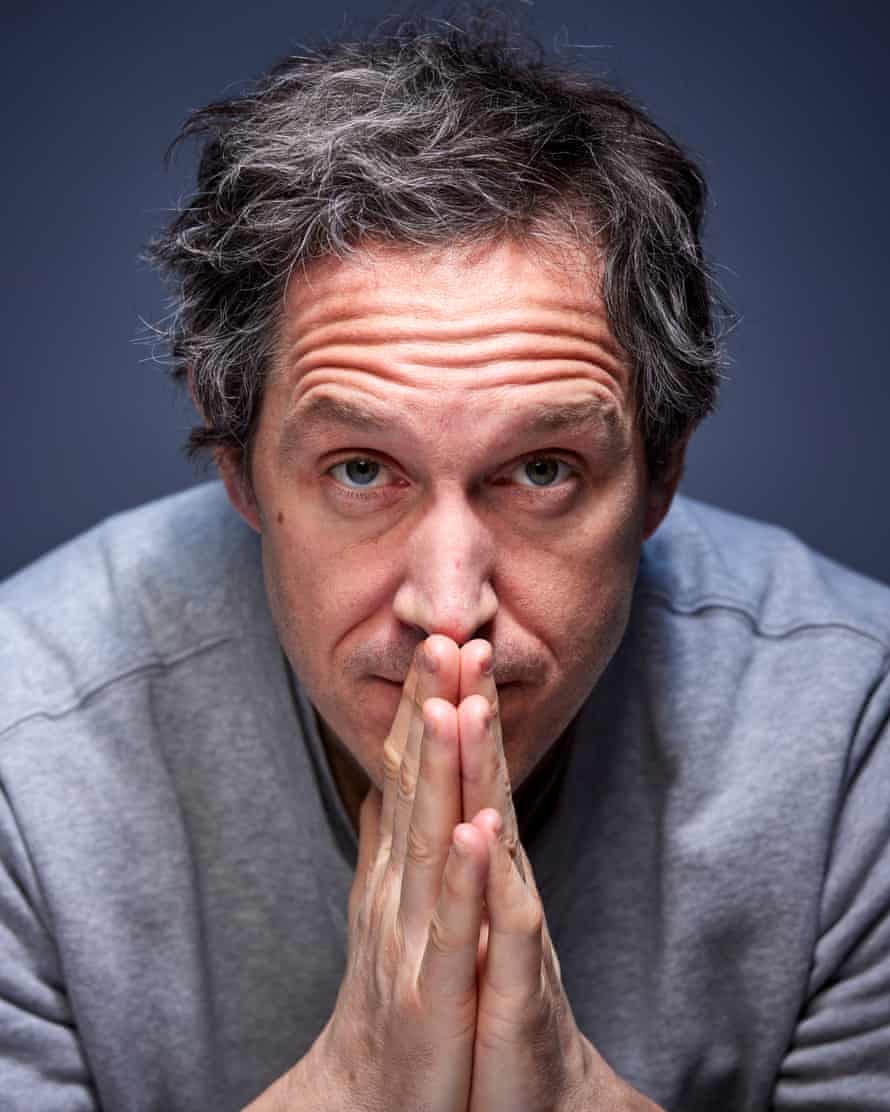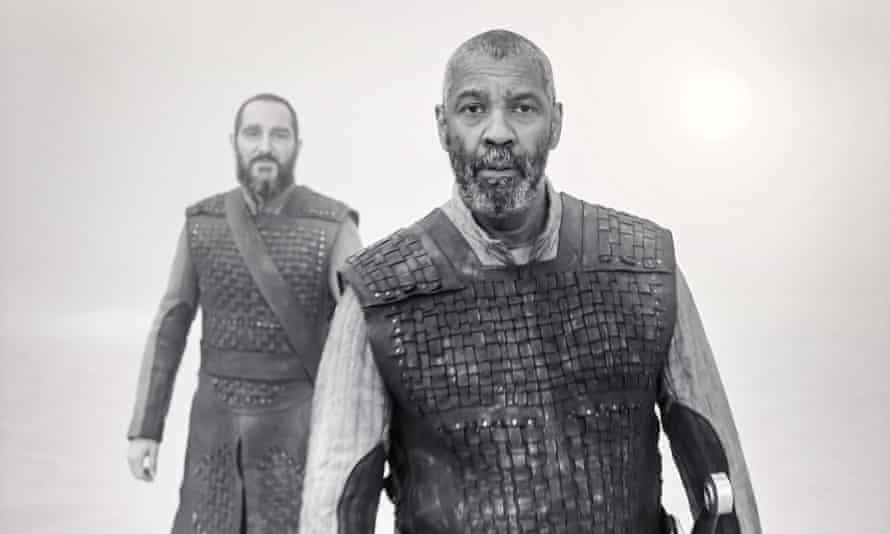‘I get a chill’: Bertie Carvel on exploring the human side of Donald Trump | Bertie
“I don’t really believe in evil, as such,” says Bertie Carvel. “I think there are evil actions. Evil stuff happens, and people cause it. But I don’t believe in good people and bad people. I think people are a composite of their character’s circumstances or decisions. And your job as an actor is to sort of … walk in those shoes.”
Carvel seems attracted to a certain moral murkiness. His résumé includes roles as Rupert Murdoch in James Graham’s play Ink; Miss Trunchbull, the monstrous headmistress in Roald Dahl’s Matilda the Musical, whom he played on stage in both London and New York; and Simon Foster, the sociopathic, financially reckless love rat from BBC One’s Doctor Foster. In the past, he has said that he likes portraying questionable characters and having “a damn good try making you like them”. His interest in politics and power led to him portraying that Faustian antihero Nick Clegg in the Channel 4 drama Coalition; he is about to play Tony Blair in The Crown. But on the morning we meet, he is deep into rehearsals for a role that fuses politics with ethics – or the lack of them – and marks his most daring career move to date.
Carvel’s portrayal of Donald Trump is at the heart of a new play titled The 47th – as in the 47th president of the United States, the shorthand Trump is already using for his imagined victory over Joe Biden (number 46) in the US election that will take place in 2024. Written by Doctor Foster’s creator, Mike Bartlett, and staged at London’s Old Vic, it is an inventive imagining of the buildup to that contest – which puts Trump at the centre of a cast of characters that also includes Biden, his vice-president, Kamala Harris, and Trump’s elder children Ivanka, Eric and Donald Jr – against a backdrop of the kind of civil unrest that broke out when Trump supporters stormed the Capitol building on 6 January 2021.

As with Bartlett’s play King Charles III, about the arrival on the throne of the next monarch, most of the script for The 47th is written in iambic pentameter. The device is imposed on Trump’s singular style of speech to wondrously comic effect. But the play also has a serious, frequently terrifying undertow – because however absurd its principal character’s antics are, everything feels as if it could actually happen.
“I get a chill reading this script because it’s completely credible,” says Carvel. “It’s so hard to write Trump because he does stuff you literally can’t make up.”
It is, I suggest, quite a role to tackle. Even taking into account the baddies Carvel has played in the past, he may initially face a wall of unprecedented loathing.
“Well, I don’t think it’s that different,” he says. “You’re right: people will come to it with a predisposition to think certain things about him. But a big part of theatre is meeting people’s expectations and challenging them. Not necessarily because you want to change people’s minds, but as an advocate for the character, you’ve got to say: ‘Look at me as a human being.’ That could include megalomania, narcissism or sadism. But you have to present someone who is complete. Coherent.”
I have been sent a work-in-progress version of the script, and within 10 minutes of starting it, I got a sharp sense of what Bartlett and Carvel want to dig into. Underneath this Trump’s bombast and nastiness, there is someone isolated, scared and endlessly in need of validation. “You don’t have a single friend,” Harris tells him at one point. “Your wife lives separately, your kids despise / Your guts, and so you need a place to go / Where you can simply talk / The lonely loser hates the world and so / Resentful, turns his tantrums on us all.”
“That’s someone psychoanalysing him, so it’s not necessarily the truth of the character,” says Carvel. “But it’s triggering for him to hear that stuff, I think. Loneliness is there. Mortality is a big theme. There’s a sense of being motivated by his legacy. And audience is a big subject. Who are they, and what is his relationship with them?”
What Carvel says next is full of the anticipation felt by someone who has not appeared in front of a theatre audience since 2019: “That’s one of the things I’m going to have a lot of fun with when we get one.”
We talk in one of the Old Vic’s upstairs rooms. Carvel, who turned 44 last year, is about to go into another day of rehearsals. His regular digressions into the granular detail of acting highlight both his famous levels of dedication to his craft (one associate has talked about his talent being partly based on “obsessive worrying” about his roles), and the fact that, with only a fortnight until The 47th begins its first run, he is deeply immersed in his latest job.
Carvel looks about as different from Trump as anyone conceivably could: rake-slim (when he had a beard, an interviewer once compared him to “an extremely thin Rasputin”), and dressed in a grey sweatshirt and slim-fit jeans, though he carries a somewhat Trumpian blue baseball cap with him. Whether he will play the former president with any special physical adornments is currently undecided, he says: he might take the “Brechtian” option of spurning makeup and costumery, or, alternatively, try to look as close to Trump as he can. “I would love it – to walk out on stage, and for people to go [gasps], ‘It’s him!’ But there’s something just as satisfying about people saying, ‘How’s this guy going to do Donald Trump?’ and then thinking, ‘I’m convinced.’”
Sign up to our Inside Saturday newsletter for an exclusive behind-the-scenes look at the making of the magazine’s biggest features, as well as a curated list of our weekly highlights.
As well as Trump’s personal foibles, the play also explores what convinces millions of people to support him – not just base prejudice, but resentment about America’s deep economic inequalities, and the gaps that separate well-intentioned, affluent liberals from the kind of people who now form Trump’s electoral base. The basic point is made when Trump turns on Harris and accuses her and her allies of snobbery and condescension towards his voters: “You speak to them like kids, and not just kids but poorer, less good-looking / Trashy kids, that you and your celebrities / All constant lecture, from your raised pile / They stay on lowest wage while you reserve / Your fight for theory built in Ivy League.” Here, I suggest, is something very close to Trump’s authentic point of view.
“It would be a turkey shoot if you didn’t give Trump a voice to make his argument,” says Carvel. He then talks about something that was obvious when Trump first ran for the Republican nomination: that his candidacy was tapping into not only some of people’s worst instincts, but a lot of undeniable economic and social inequalities as well. “At the time, we were laughing at the idea that he could become the Republican nominee, let alone the president but, actually, he was giving voice to the anxieties and stark inequalities which mean that people who want to stoke division and splinter democracy are able to do – because of something underlying it all: something real, which is worth thinking about.”

In many liberal and leftwing circles, I remind him, as Trump’s time in the White House went on and his rule became grimmer and grimmer, that way of looking at his success was quickly deemed unacceptable. The done thing is still to blame his rise to power simply on the politics of hate, so painting even a slightly more nuanced picture will probably unsettle and even enrage many of the people who come to see the play.
“It’s … challenging, yeah,” Carvel says. “But that’s what theatre should do: provocation, making an audience uncomfortable. Inviting them to think.”
When he first read it, did the script make him uncomfortable? There’s a very long pause, before his face assumes an expression of camped-up guilt. “To be honest, I was thinking about how to do it. And I was like, ‘Oooh-hoo!’” He rubs his hands with theatrical glee.
As well as King Lear, one of the other obvious…
Read More: ‘I get a chill’: Bertie Carvel on exploring the human side of Donald Trump | Bertie

